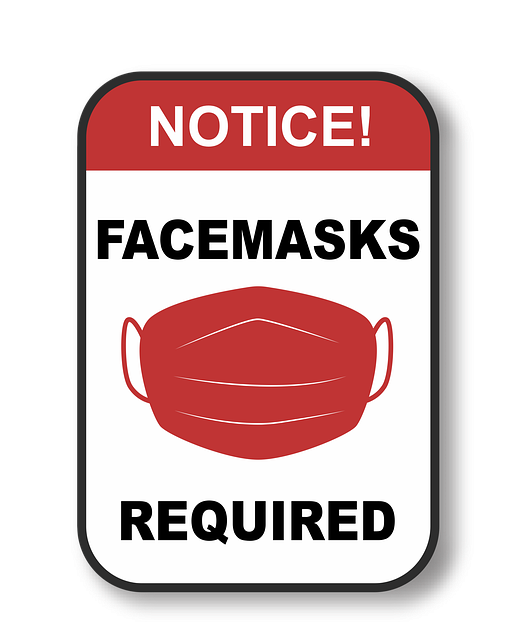
In-person events continue to slowly return across the country even as the COVID-19 pandemic stretches on. Inevitably, your radio station will host or sponsor an in-person event that may or may not have requirements in place to address the pandemic.
For example, they could require proof of vaccination, recent negative test results, the use of facemasks, some combination of these things, or none of them.
Sooner or later, your station is going to find itself in a situation where it is requiring online registration for an event in which the registrants need to know what the pandemic requirements (or lack thereof) are. It could be a giveaway for an acoustic session with an artist, a listener appreciation party with the morning show, or a job fair. It’s inevitable that once your station gets involved with events again, some portion of your listeners could be upset by these requirements – or a lack of them.
If the event’s pandemic requirements are strict, less cautious listeners will be upset; if the event’s pandemic requirements are lax, more cautious listeners will be upset. This is tricky ground for radio stations that are courting the broadest possible audience. However, there are some steps you can take to minimize the number of people who become unhappy, and the intensity of their exasperation.
Minimizing listener frustration comes down to two things:
- Tell your listeners what your station is going to do in advance.
- Do what you say you’re going to do.
When radio stations run into trouble with vaccination policies, it’s because they make one of two mistakes:
- Listeners are caught off guard because they weren’t made aware of policies ahead of time, or
- The station doesn’t do what they say they’re going to do
For example, let’s say WKRP in Sunnydale is hosting a Battle of the Bands. The competition will be held at a local club called The Bronze. The station is inviting bands to register through a form on its website; it is also selling tickets to the competition through its site. Here’s how the station can minimize disruption over vaccination protocol:
1. Know the policy and know how it will be enforced.
In most cases, the station will not dictate the pandemic vaccination policy; that decision will be made by the venue or the event producer. In our example, The Bronze sets the policy. Because WKRP’s name is on the Battle of the Bands, it needs to understand and clearly communicate this requirement to both the bands entering the competition and the listeners attending. WKRP should ask The Bronze’s manager a series of questions to clarify the policy:
- Is proof of vaccination required? Will recent negative test results be accepted?
- If these are required, do they need to be physical copies, or will photographs be accepted?
- Will masks be required? If so, will masks be made available to anyone who forgot to bring one?
- Who is responsible for enforcing the requirements?
- What happens if somebody shows up and does not meet the requirements?
In our example, The owner of The Bronze has decided that everybody must show proof of vaccination or a negative test result to get into the club, but does not require masks.
2. Communicate the pandemic requirements (or lack thereof) clearly and boldly.
Bands and listeners need to know the policy in order to make a decision about whether or not they are going to attend/participate in WKRP’s event, so the station should communicate it very clearly. On both the registration form and the ticket purchasing form, the pandemic requirements should be front and center. It should be given the same weight on the page as the date and time of the event.
If the policy is more complicated than can be conveyed with a single phrase, state the policy succinctly and link to a separate page with more details.
If the event does not have a COVID-type requirement, this should still be stated up front because some listeners will want to know about it before making their decision to attend. For example, the website might say, “Proof of vaccination/masks not required.”
Do not bury the pandemic requirements (or lack thereof) in a big block of text, on a Rules page, or in fine print at the bottom of the webpage.
3. Address requirements (or lack thereof) in the online form.
One way to ensure that people don’t miss the requirements is to specifically address them in the online forms used for registering or purchasing tickets for an event. For example, WKRP’s registration page for the Battle of the Bands competition could feature a required question that reads, “The Bronze requires proof of vaccination for entrance. Will you be able to provide this?”
Using conditional logic, the form could tell potential registrants who answer “No” that they are ineligible to compete.
If an event does not have pandemic requirements, the station should still address the issue in the form by asking people to check a box stating, “I understand that there are no vaccination or mask requirements for this event.” While such a question might discourage more cautious registrants, it’s better than having to rearrange the Battle of the Bands schedule or issue refunds to ticket buyers later.
If the band Dingoes Ate My Baby has to drop out of the competition at the last minute because the members didn’t realize that they need to be vaccinated, the WKRP staff will be forced to scramble, and fans of the band who were under the impression DAMB was performing will be justifiably upset.

4. Reiterate the requirements (or lack thereof) often.
Somehow, some people are going to make a decision to attend an event without fully understanding the pandemic requirements (or lack thereof), and then regret it. Don’t assume that just because a person purchased a ticket, entered a contest, or registered for an event they understand and accept the requirements. No matter how clearly the policy is stated, some people will miss it, or will think it won’t be enforced.
When this happens, the station’s goal is to call the person’s attention to the policy as soon as possible so that they can course correct. What the station is trying to avoid is having a person arrive at the event and realizing for the first time that there is a requirement.
To do this, repeat the requirements (or lack thereof) as often as possible, including in these places:
- On the confirmation page after the online form submission
- In the confirmation email that is sent after the online form submission
- In the reminder emails that are sent prior to the event
- On a sign that is posted at the entrance to the event
- On your station website (and perhaps on your app) where the event is listed
5. Pass the buck (where appropriate)
I’m not in the habit of blaming others, but in this case, it can be a helpful strategy for diffusing tension. Since the decision about pandemic requirements is not likely to be under the station’s control anyway, this fact can be used to insulate the station from blame. Phrase the requirements accordingly. For example, WKRP’s Battle of the Bands registration webpage would say, “The Bronze requires proof of vaccination for entry” instead of just, “Proof of vaccination required.”
6. Plan the responses to criticism in advance.
No matter what they are, radio station event requirements may be criticized. The station’s goal is to prevent the negatives from escalating. Expect criticism to come in the form of emails, social media posts or comments, and in person at the event.
Ahead of time, game out the likely criticisms you might hear, and then craft an appropriate response, perhaps based on some of the above guidelines. Decide in advance how to the station will handle these criticisms and make sure that any staff member who might respond knows how to do so appropriately.
The monk and poet John Lydgate famously said, “You can please some of the people all of the time, you can please all of the people some of the time, but you can’t please all of the people all of the time.” The transition back to in-person events could be a bumpy one, but radio stations can take steps to minimize the impact of that turbulence.
- A Simple Digital Treat to Thank Your Radio Listeners This Thanksgiving - November 13, 2023
- Interview Questions When Hiring Your Radio Station’s Next Digital Marketing Manager - November 6, 2023
- A Radio Conversation with ChatGPT: Part 2 – Promotions - October 30, 2023





Excellent article.
Clear has also added a Vaccination Identification to their App. It uses facial identity to connect the holder of the vaccine card with Clear. Much like when you use Clear at an airport or to get into a concert or sporting event. Lives on your phone.
Thanks, Mike! Yes, the pandemic has definitely spurred technological innovations. It will be interesting to see which ones are adopted broadly.